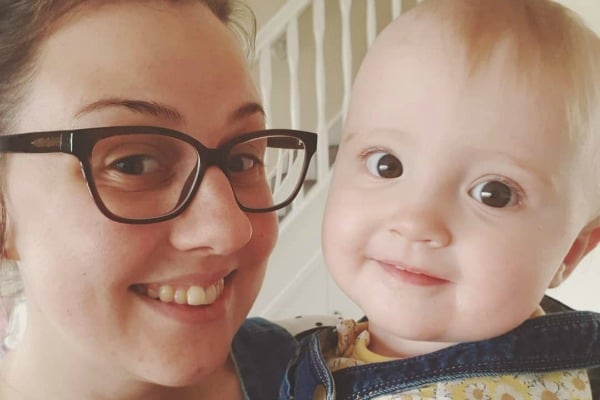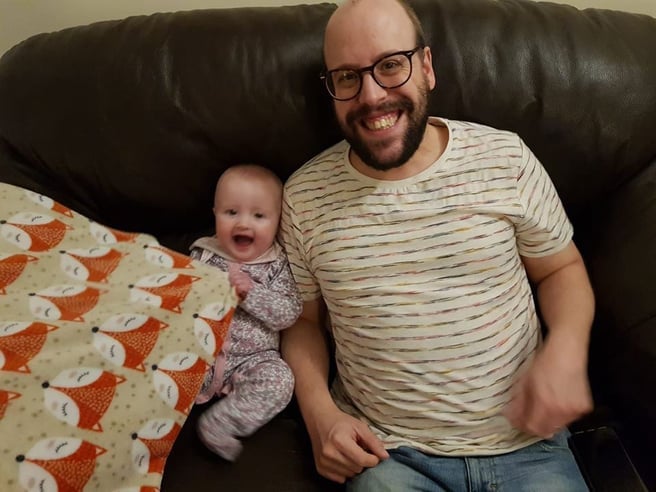
My husband has a type of cerebral palsy called diplegia. Both of his legs are affected and although he can walk, it is difficult for him. He typically has trouble walking for a long time and with balance. Other than that, his disability hasn’t prevented him from living a full life.
When we were trying to conceive, we didn’t really take his disability into account. I was convinced everything would be fine. It’s never got in the way of our life. In fact, we hardly think about it. So why would parenthood be any different?
Vanessa Cranfield on parenting a child with a disability. Post continues below.
Unbeknownst to me, my husband had a lot of worries. This intensified when I got pregnant. He had never had to think about what he couldn’t do. But now he was going to be a father, he was forced to think about his physical limitations.
Although my husband did share some of these worries, I was optimistic. I would reassure him, truly believing everything would be fine. I realise now I was being dismissive.
***
Our daughter was born on July 4, 2019. It was a pretty straightforward birth, but the difficulties we would face as parents became apparent in the delivery room. When I needed my husband to help me through my contractions whilst I had an epidural, he struggled due to his physical barriers. When I went to have a shower after the epidural had worn off, he was tasked with washing and dressing our daughter. Physical barriers made this difficult for him.



Top Comments